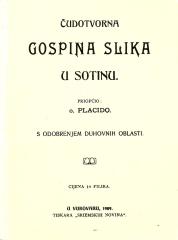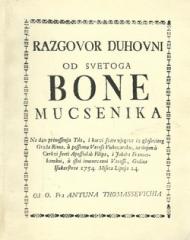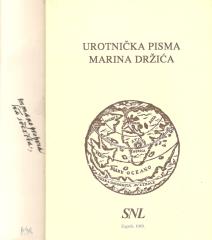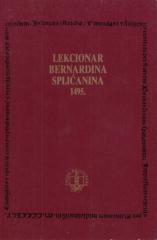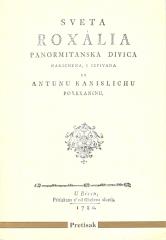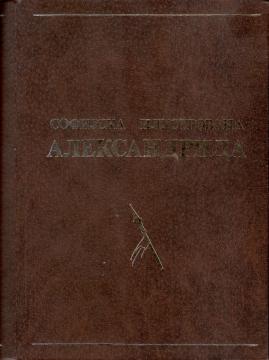
Sofijska ilustrovana Aleksandrida
Aleksandrida je srednjovjekovni roman o Aleksandru Velikom i njegovom osvajanju svijeta. Fototipsko izdanje.
Roman o Aleksandru Velikom prerada je povijesti njegovih ratova, ali prerada u kojoj se od inače legendarne osobnosti makedonskog kralja pravi fantastičan lik. Roman je preveden na srpski jezik u 14. vijeku i postoji u tri verzije, na glagoljici, ćirilici i bosančici. Roman je jako dugačak, preko stotinu stranica.
U hrvatskoj srednjovjekovnoj književnosti sačuvana su dva prijevoda romana. Pisane su bosančicom, jedna na čakavskom narječju (od sredine 16. stoljeća), druga, mlađa, na štokavskom. Oba su prijevod crkvenoslavensko-srpskog izvornika, koji je u Rusiji dobio ime Srpska Aleksandrija. Jezik se u tom izvorniku naziva srpski, pa su taj naziv zadržali i hrvatski prevoditelji.
Dubrovački pjesnici spominju i Lesandra Serbjanina, a Aleksandrovu povelju, kojom daje posebne povlastice Slavenima, a na koju se već u 13. stoljeću pozivaju Česi i Poljaci, s osobitim ponosom spominju povjesničar Mavro Orbini i Andrija Kačić-Miošić u Razgovoru ugnošno.
Svojim karakterom narodne knjige roman je bio blizak narodnoj psihi, pa je utjecao i na narodnu usmenu književnost. Neke od tragova u našoj narodnoj književnosti zabilježio je Stojan Novaković u spomenutoj knjizi. Tako je epizodu s putovanjem vojske kroz “tamni vilajet” na sitnom kamenju za koje se kasnije pokazalo da je drago kamenje zabilježio Vuk u Rječniku zapisom “Tama”, a drugu varijantu te zgode zabilježio je N. Dučić. u Crnoj Gori. Često se javlja i epizoda s besmrtnom (živom) vodom, poput one o Dariju i Poru. U Dušanovoj ženidbi njegova se izabranica zove Roksanda, ime koje je gotovo sigurno preuzeto iz romana o Aleksandru.
Zbog raspršenosti tradicije romana, neke epizode u rukopisima nisu potpuno jasne. Zanimljivo je da naši stari prijevodi često daju objašnjenja za nejasnoće u grčkim tekstovima. Stoga nije posve razumljivo zašto Aleksandar ubija svog oca Nektaneba, gurajući ga u ponor dok mu ovaj tumači nebeske pojave. Objašnjenje koje se ponekad daje da je ubijen zato što Nektaneb ne poznaje zemaljsko i nastoji upoznati nebesko nije baš prihvatljivo. Kod Stojana Novakovića nalazimo sasvim drugačije i mnogo logičnije objašnjenje koje ne baca tako ružnu sliku na Aleksandra. Aleksandar pita Nektaneba zna li od koga će umrijeti. Odgovorio je da će umrijeti od svog sina. Kako bi ga natjerao na laž, Aleksandar gura starca u ponor i time se, naravno, na pomalo edipovski način, ispunjava proročanstvo. Na gozbi s Darijem Aleksandar u njedra skriva zlatne čaše u kojima nazdravlja. U grčkim rukopisima značenje ovog tipično folklornog motiva nije vidljivo, ali se otkriva u našim rukopisima: pri bijegu iz Darijevog grada Aleksandar tim peharima podmićuje stražare na ulaznim vratima i tako uspijeva izbjeći potjeru .
Jedan primerak je u ponudi
